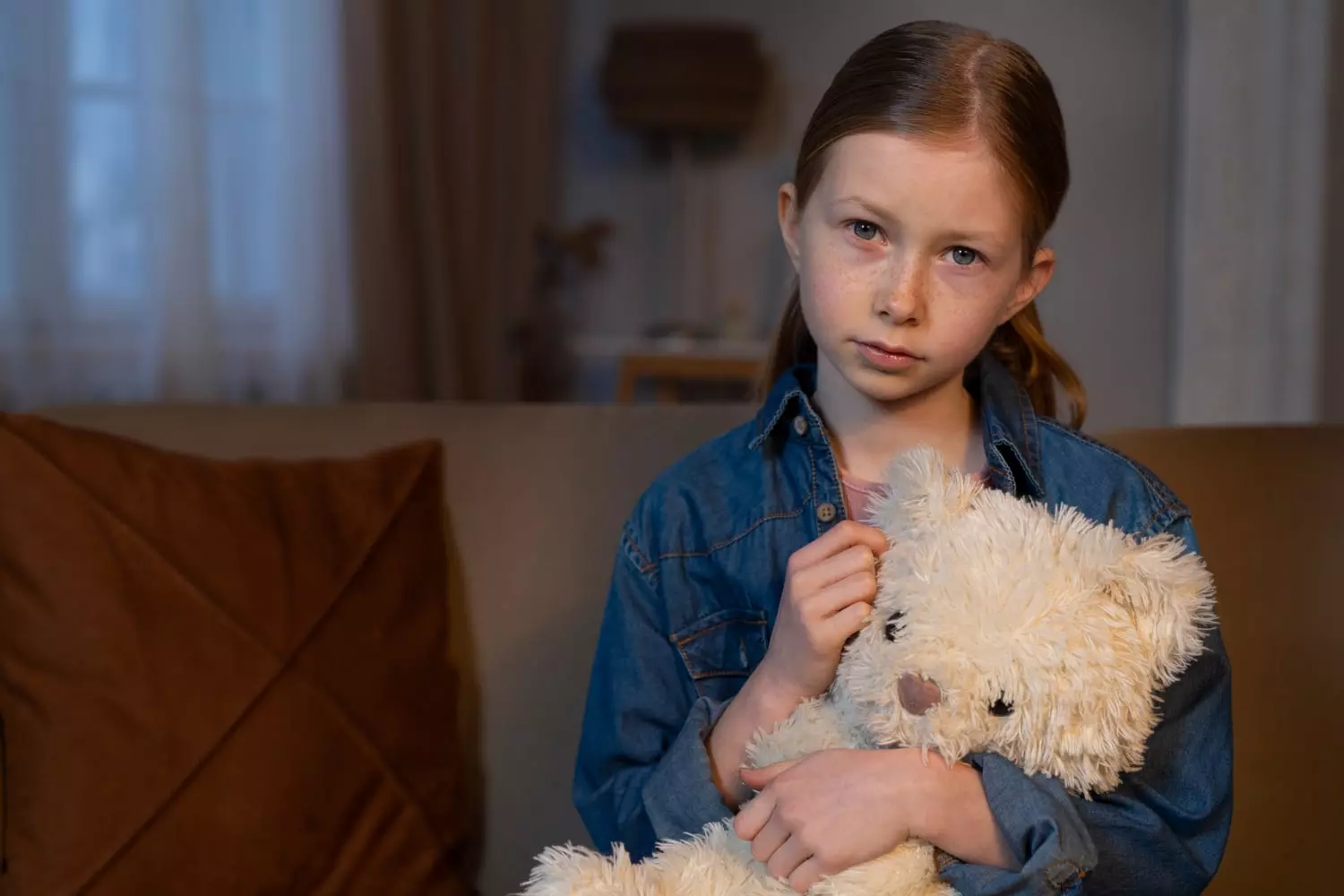What Happens Psychologically When A Parent Dies: A Detailed Review On Childhood Trauma
“When I was really young, I didn’t understand how my mother died. I felt as if it was my fault that she died, and it made me feel guilty of anything bad that had happened.”
Death of a parent is a highly traumatic and potentially transformative event that comes with variable consequences. According to a study, 3-4% of children lose their parents before the age of 18.
This article will briefly explain what happens psychologically when a parent dies and how to cope with the loss.
6 Common Psychological Effects When A Parent Dies
After a parent’s death, the psychology of a child depends upon the following factors:
1. Traumatic Journey
Loss of a loved one is the most difficult thing a child can face. What happens psychologically when a parent dies is strongly associated with the nature of their parent’s death. Whether the parents die at an old age or they die unexpectedly, the child experience strong negative emotions like depression, anxiety, sadness, frustration, fear, emptiness, loneliness, anger, denial, loss of self-care, sleep disturbance, drug abuse and suicidal thoughts.
2. Behavioral Impact
Death of a parent at an early age comes with terrible behavioral issues such as unhealthy eating habits, loss of self-care, panic attacks, low self-esteem, increased sexual risk behaviors, nightmares and consistently declining academic performance due to depression.
3. Feeling Of Guilt
Children are blamed for their parent’s death if they are angry at the parent before their death. What happens psychologically when a parent dies is a sensitive matter and is associated with the feeling of extreme guilt. Children think that they are responsible for their parent loss, and they try to compensate for the crime they haven’t committed.

4. SELF-ISOLATION AND DISTANCING:
No other bond is stronger than the bond between a parent and a child. When a child loses his parent, he also loses his innocence and unconditional love that only a parent can give to a child. What happens to a child psychology when a parent dies is most children self-isolate themselves. They feel they are different from their fellows now and nobody can understand their feelings. By isolating themselves, they try to run away from the bitter reality by distracting themselves and focusing on other things.
5. POST TRAUMATIC GROWTH (PTG)
What happens psychologically when a parent dies varies between different individuals. Post-traumatic growth is a positive growth or behavior that is seen in some individuals after any unpleasant situation. PTG is seen in most children who endured loss of their parents bravely. After understanding the complexity and fragility of life, they started seeing life with a new perspective.
6. THINGS CAN NEVER BE THE SAME AGAIN
“You have a special place in my heart
No one ever can fill this space”
Nothing can console a bereaved child when it comes to a parent’s death. Their life perspective change permanently and they start looking at the world from a different angle. Sometimes, loss of a parent comes with a financial burden on the family. So, what happens psychologically when a parent dies is that the elder child becomes the breadwinner for the family. While taking care of the family, the elder child unknowingly takes place of that parent, thus ignoring his own needs and wishes. He takes guidance from his parents in his inner mind and start mimicking his lost parent’s personality in major life decisions, thus masking his own personality.
Living In Family Home When Parent dies
“If only those walls could talk”
Moving to the parent’s home after their death is comforting for some and distressing for others. Most adults shift to their parent’s home after inheritance of the parent’s property. They redecorate their parent’s home, clean and renovate it, invite friends, go to different rooms to resurrect the old memories.
THE IMPACT OF LOSING A PARENT ON BRAIN ACTIVITIES
What happens psychologically when a parent dies affects the brain in variable ways. The affected child experience change in body language, impaired memory, low attention span and decreased cognition leading to brain fog. If this grief period lasts long, the child goes into chronic stress, which puts his brain in long-term flight and fright response mode.
QUESTIONS TO ASK PARENTS BEFORE THEY DIE
By asking questions from a parent before their death makes children get closer to them. They can learn more about their personality, likes, dislikes and their life journey. What happens psychologically when a parent dies can be minimized by spending time with them before their death. They can ask questions about their past, childhood memories, funny incidents, love life, legacy questions, useful advises, their liminal phase and their family.
WHAT IS THE HARDEST AGE TO LOSE A PARENT?
Losing a parent is difficult, no matter the child’s age. What actually matter is how someone supports them morally on this tragic incident. What happens to a child psychology when a parent dies depends upon the strength of the bond between the child and the parent. Studies have shown that before the age of 12 years, children have worse psychological effects when their parent dies.

WHAT HAPPENS PSYCHOLOGICALLY WHEN A PARENT DIES: GENDER SPECIFIC FACTS
There are certain gender-specific differences affecting the psychology of a child when a parent dies. Death of a mother is more depressing for girls, while boys are mother’s death.
WHAT HAPPENS TO DISABLED ADULT WHEN THEIR PARENTS DIE
Most Parents of special need adults have already booked an appointment with special need trusts so that they can be taken care of after their death. From estate planning to writing their will and distributing their assets among their kids, they make sure their special need adult is in safe hands by hiring a trustee to look after the funds.
THE EFFECT OF SURVIVING PARENT’S BEHAVIOR ON CHILD PSYCHOLOGY
Children consider their parents as their protectors and guardians. What happens psychologically when a parent dies is that they become uncertain and insecure about their future. The elder child is mostly asked to control his emotions, which results in long-term suppression of feelings and emotions. The single left parent also suppresses his emotion, resulting in delayed healing towards normal life. To minimize its psychological impacts, they try to act normal in front of kids. This sometimes proves as a coping mechanism towards grief, and it can be helpful for the child to cope with the tragedy as well.
INTERVENTIONS TO OVERCOME THE TRAGIC LOSS
Instead of just pushing the matter under the rug, what happens to a child psychology when a parent dies is improved by the following steps.
1. GRIEF COUNSELING
Healing from a parent’s loss is a slow and steady process, but it can be accelerated by accepting the bitter reality and moving forward. If the child is unable to cope with the reality, then a grief counselor can be consulted who not only listen to their feelings but also helps them in managing and regulating those feelings. Grief support programs are also available, which help people who isolate themselves and feel lonely.
2. FAMILY COUNSELING
Misunderstanding among family members is what happens psychologically when a parent dies. There may arise some past conflicts and unresolved matters which can be sorted out with the help of a family counselor.
3. EMOTIONAL SUPPORT
Children should be encouraged for self-care. By taking good care of themselves, doing exercise, eating and sleeping well, children can cope with their grief at a faster pace. They should be assured that they are not alone in this painful journey.

4. NORMALIZE GRIEF AND RE-GRIEF
Children should be taught that expressing their grief and insecurities is normal behavior. If the child is in guilt, anger and disappointment, the adults in the family should ensure them that the death of their parent isn’t their fault. Remembering the lost parent on special big occasions like marriage, graduation and birthdays is totally acceptable.
5. UNDERSTAND THE CHILD
To understand what happens to a child psychology when a parent dies, the surviving parent should listen to the child through positive parenting techniques. By teaching them that some events are uncontrollable, the parent can enhance the coping skills of a child, thus enabling them to survive difficult situations.
6. FAMILY BEREAVEMENT PROGRAM
Family bereavement program helps a child and the surviving parent to cope with the devastating situation. The psychological effects on a child can be tremendously improved by their brief and skill-focused interventions.
FAQs:
What is the most traumatic age to lose a parent?
Regardless of age of a child, loss of a parent is the biggest loss for them. People of age 35-45 experience more anxiety about their parent’s death as they can witness the declining health of their parents.
What happens to special need adults when their parent dies?
The parents of special need adults pre-book an appointment with trustable welfare so that they can be taken care of after their death. A trustee is appointed to look after the funds.
How does the death of father affect daughters?
Death of a father can decrease personal mastery for daughters. So what happens psychologically when a parent dies is that they feel depressed, helpless and adopt negative psychological behaviors.

